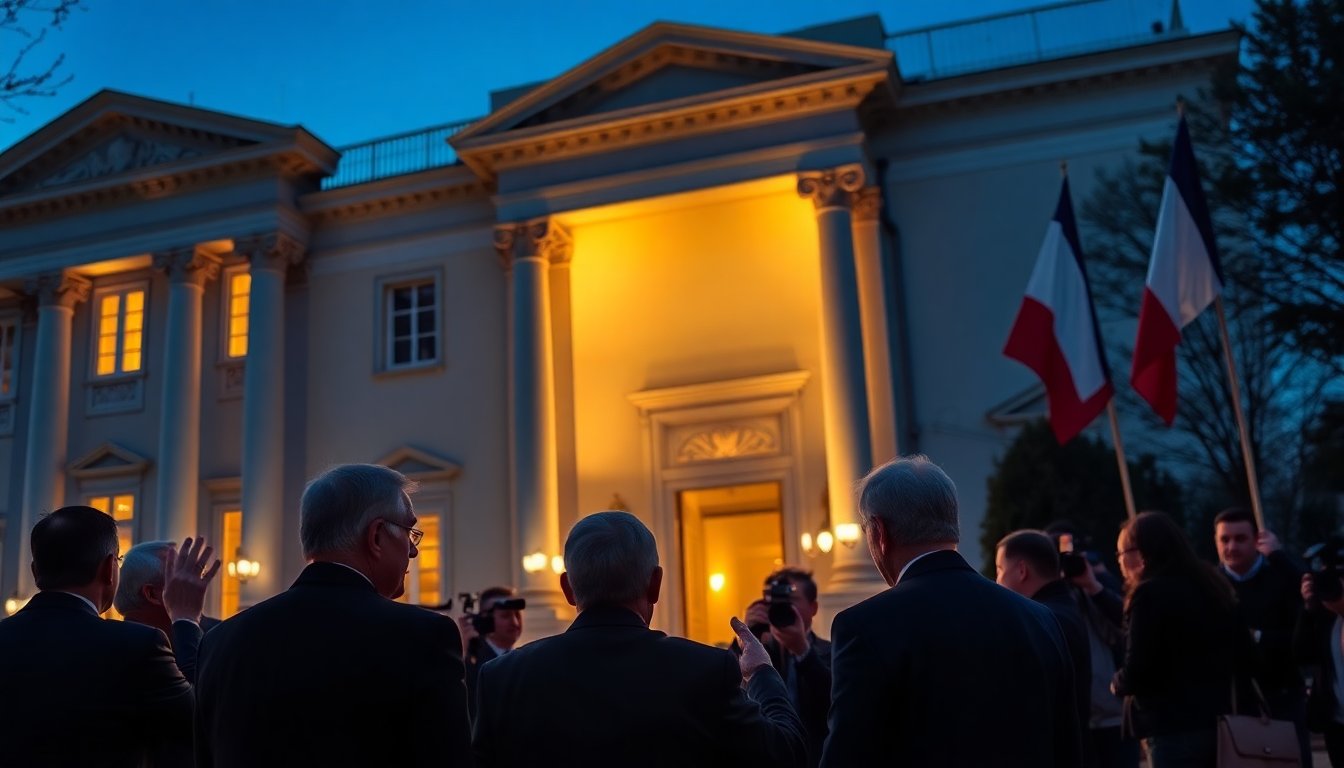Table of Contents
As the sun set on Friday evening, anticipation surged within the political atmosphere in France. The appointment of a new Prime Minister was imminent, with President Emmanuel Macron determined to influence the outcome. At the center of this political storm was Bruno Retailleau, the current Minister of the Interior, making a last-ditch effort to shape the government’s future.
Earlier that day, around 5 PM, Retailleau exited the presidential palace alongside his colleague and rival, Laurent Wauquiez. They had just attended an urgent meeting called by Macron but left without making any comments to the waiting press. The tense atmosphere was palpable, with only a strained smile from Retailleau betraying the pressure of the moment.
The urgency of political alliances
During the meeting held in the opulent Salon des Ambassadeurs, Macron did not explicitly state his intention to reappoint Sébastien Lecornu as Prime Minister. However, it was evident to all present that no other candidates were being considered. Retailleau voiced strong objections, both publicly and privately, asserting that his party, the Republicans, would not support a government led by either a Macronist or a socialist. He urged the President to consider naming someone independent of his influence.
Retailleau reiterated his concerns directly to Macron, while Wauquiez opted to defer the decision to his party members, aware that many were not overly concerned about the potential suspension of pension reform—a point that deeply troubled Retailleau. Some party members were motivated by personal ambition, eyeing potential ministerial positions amidst the chaos.
The late-night call
Later that evening, Retailleau received a phone call from Macron. The President, who had promised to announce his choice for Prime Minister soon, sought to persuade Retailleau of Lecornu’s suitability for the role and to encourage the Republicans to join the government. Their conversation was marked by tension, with Retailleau warning Macron that appointing Lecornu would be akin to a political betrayal, referencing the historical implications of the Treaty of Lisbon.
“Matignon cannot be an extension of the Élysée,” Retailleau insisted, suggesting alternatives like Jean-Louis Borloo or Xavier Bertrand, whom he felt would be more acceptable. Macron, however, countered with a surprising proposal: if Retailleau approved, Lecornu would come to Beauvau to collaborate on forming the government.
Unexpected developments
Immediately after hanging up, Retailleau received a call from Bertrand, who had been advocating for the Republicans to avoid joining the government. Bertrand aimed to persuade Retailleau to reconsider and listen to Lecornu’s perspective, citing a lack of viable solutions and the looming crisis. Unfortunately, his efforts mirrored Macron’s in terms of effectiveness.
Not long after, Retailleau was contacted by Lecornu himself, who sought to clarify Retailleau’s boundaries regarding potential defections from his party. Lecornu suggested meeting, but Retailleau was reluctant to visit Matignon again, having done so discreetly just days prior. Instead, he proposed that Lecornu come to Beauvau through a side entrance, a meeting that ultimately did not take place.
Political tensions rise
As the night wore on, uncertainty lingered. A close advisor to Retailleau expressed disbelief that Lecornu would not be confirmed that very evening. For Retailleau, who had ruled out supporting a government led by a Prime Minister who had previously resigned, the situation felt unresolved as Macron continued his attempts at persuasion.
This last-minute hope was not something that Thierry Solère, a close ally of Macron, would fault. Solère claimed he had tried to convince Macron to reconsider a last-minute appointment of Bruno Le Maire to the Ministry of the Armed Forces. Macron had reportedly dismissed this suggestion, emphasizing the impossibility of changing the government just before an announcement.
Earlier that day, around 5 PM, Retailleau exited the presidential palace alongside his colleague and rival, Laurent Wauquiez. They had just attended an urgent meeting called by Macron but left without making any comments to the waiting press. The tense atmosphere was palpable, with only a strained smile from Retailleau betraying the pressure of the moment.0
The political landscape ahead
Earlier that day, around 5 PM, Retailleau exited the presidential palace alongside his colleague and rival, Laurent Wauquiez. They had just attended an urgent meeting called by Macron but left without making any comments to the waiting press. The tense atmosphere was palpable, with only a strained smile from Retailleau betraying the pressure of the moment.1
Earlier that day, around 5 PM, Retailleau exited the presidential palace alongside his colleague and rival, Laurent Wauquiez. They had just attended an urgent meeting called by Macron but left without making any comments to the waiting press. The tense atmosphere was palpable, with only a strained smile from Retailleau betraying the pressure of the moment.2


